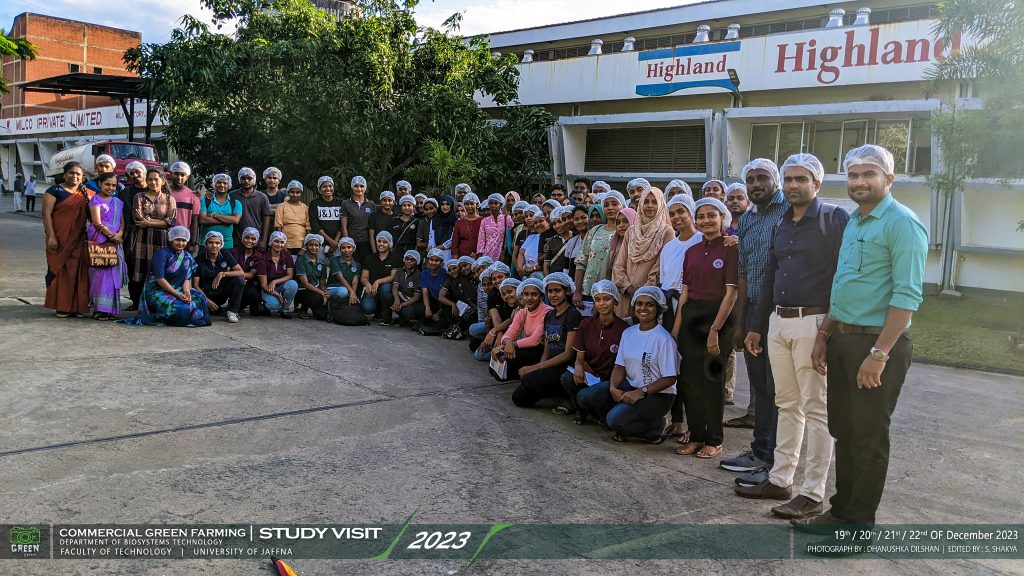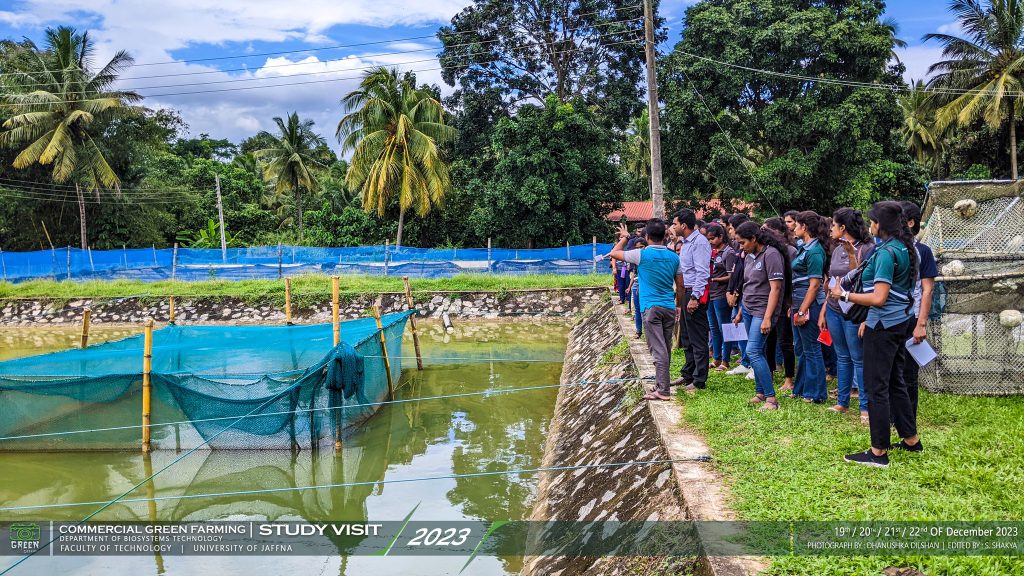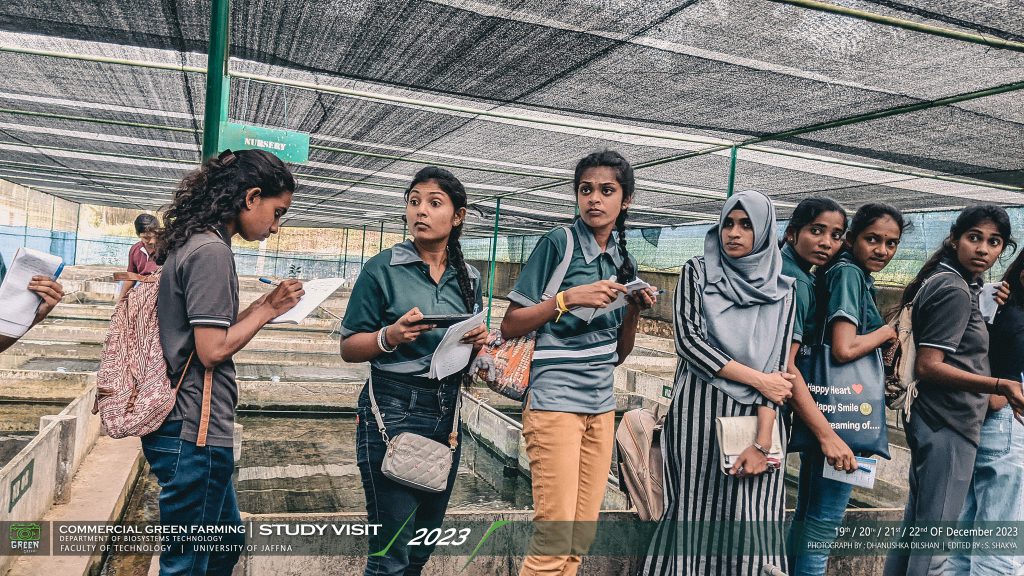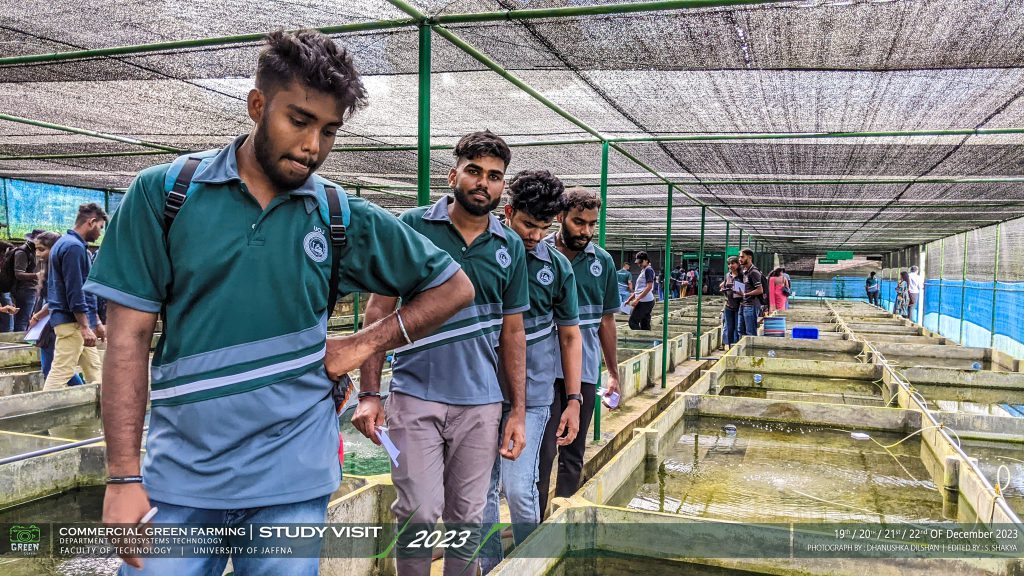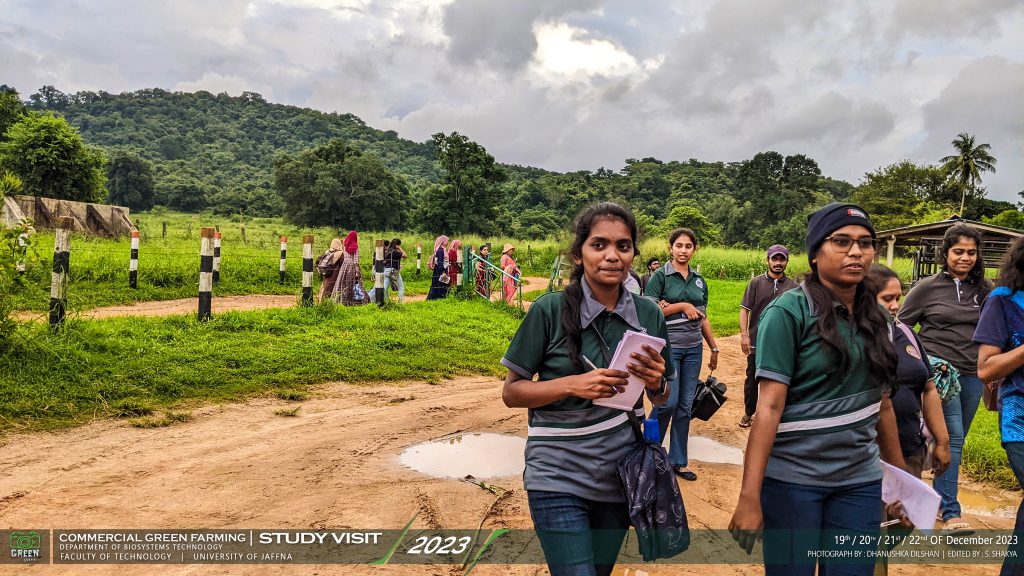"Biosystems Technology emphasizes the application of biosystems principles to crops, livestock, aquatic and microorganisms."
Department of Biosystems Technology
Welcome to Department of Biosystems Technology
Biosystems Technology is one of the demanding field with multiple scope which could contribute in developing Sri Lanka. It is identified as one of the thrust areas for research and development assistance by national and international agencies.
Department of Biosystems Technology offers the Bachelor of Biosystems Technology honours degree programme which is designed to comply with Biosystems program accreditation manual of National Biotechnology Industry Association (NBIA) and the level 6 of the Sri Lankan Qualification Framework. The duration of the study programme is for four years. Department offers two specializations namely Commercial Green Farming Technology and Food Production Technology.
Green Farming Technology specialization covers Floriculture & landscape, Agronomy of underutilized crop, Farm machinery, Water conservation, Organic farming and Bioagents. Food Production Technology specialization covers multiple areas related to Food preservation, Food processing, Food chemistry, Sensory science and Novel food product development.
Academic programmes of the Department of Biosystems Technology, University of Jaffna shall operate on a modularized credit valued course unit and semester based system. The duration of degree programmes is eight semesters in which the first three semesters are common for all enrolled students. The specialization programme commences from the fourth semester and selection is made at the end of the third semester based on the student’s preference and performance in the first three semester examinations in Biosystems Technology.
Laboratories and other facilities
Department of Biosystems Technology has gradually developed into its present status with ten laboratories and facilities of its own. As the degree offered by the Department is related to the Technology field, to have more practical oriented knowledge, almost all the courses are comprised of 20 hours of practical.
From the Head's Desk
The Department of Biosystems Technology in Faculty of Technology at University of Jaffna emphasizes applying biosystems principles to crops, animals, and microorganisms. The programme is designed to comply with the biosystems program accreditation manual of the National Biotechnology Industry Association (NBIA) and level 6 of the Sri Lankan qualification framework (SLQF 6). Students would be awarded a bachelor of biosystems technology honours degree either commercial green farming technology or food production technology after the completion of a four-year programme, based on their field of specializations. Biosystems technologists learn to integrate the knowledge of green farming and food production into technological applications in order to develop practical solutions to problems, and tend to pursue careers where they can help people, preserve the environment, and tackle societal problems. The major focus of the department is to produce skillful, knowledgeable, and competent undergraduates who can develop sustainable and resilient solutions to current and future global challenges. Biosystems staff often employ students to work on innovative research projects during the final year and giving them an opportunity to apply their knowledge. The programme is also deliberated to integrate both theoretical knowledge and practical skills in collaboration with industry partners by providing industrial training to gain real-world working experiences. The biosystems degree can serve a wide spectrum of career interests and provide students with excellent career opportunities. To make our goals successful, the department is having highly qualified academics, well-equipped state-of-art laboratories and others with ultramodern gadgets infrastructure facilities.
Ms J Rajeetha
Head / Department of Biosystems Technology
Thus eight laboratories are utilized for practical of different courses and remain two laboratories are allocated for applied researches. All laboratories are well equipped and have essential safety measures. Laboratories available at Department of Biosystems Technology are;
- Biology Lab
- Techno Chemistry Lab
- Microbiology Lab
- Novel Food Product Development Lab
- Hi-tech Lab
- Biotechnology Lab
- Analytical Lab
- Food Processing Lab
- Farm Machinery Lab
- Research Lab
Study Visit – 4th batch students – December 2023
The field visit organized by the Department of Biosystems Technology at the University of Jaffna for 4th batch of commercial green farming specialization students from the 19th to the 22nd of December 2023, proved to be an enriching experience for the students. This visit was organized under the course modules offered by Department of Biosystems Technology. The participants, including academic staff and technical officers, embarked on a four-day journey to various agricultural and research centers.
The inaugural day 19th December 2023 of the field visit saw the delegation exploring the Ornamental Fish Breeding Center in Rambadagalla and the NLDB Farm in Kurunegala. The focus was to demonstrate ornamental fish breeding techniques, providing the students with practical insights into this specialized field. Additionally, valuable livestock and poultry management instructions were imparted by the experienced staff at the NLDB Farm.
The second day, 20th December 2023 comprised visits to the Horticultural Crop Research and Development Center (HORDI), Agro Tech Park, and the Botanical Garden. At HORDI, students toured various divisions, including Plant Pathology, Entomology, Mushroom Production, and Soil Science. An enriching 2-hour lecture at the HORDI auditorium further supplemented their academic exposure and rest of the time students had their visit to botanical garden together with Agro Tech Park in Peradeniya.
Third day featured visits to the Plant Genetic Resources Centre (PGRC) in Peradeniya and the Thigana Milk Factory, providing students with insights into plant genetics and dairy processing. These visits aimed to broaden the students’ understanding of diverse aspects within the realm of Biosystems technology.
The final day of the field visit involved an exploration of the Fodder Resource Center in Kotadeniya, providing a comprehensive overview of fodder management practices. This visit aimed to expose students to the crucial role of fodder resources in sustainable agriculture.

